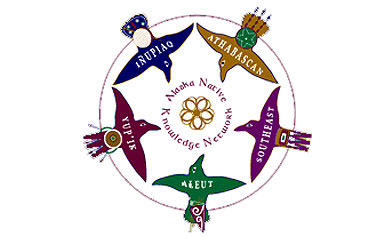"Coastal issues in Alaska affect a way of life." |
Ocean environments in Alaska are not just sources of food or income but are the foundation
of a way of life in a cultural context. That concept was built into COSEE Alaska in its
development of regional ocean science fairs, in forming partnerships with entire villages, and
in working with students. "We ask the same questions through Western science, and that's the
value of COSEE Alaska, "says Dr. Michael Castellini. "It's not an academic exercise. Coastal
communities are interested in ocean sciences because they live there and depend on it."
Climate change impacts Native communities every day, as the sea ice changes and animal populations
fluctuate. In studying climate change in Alaska, Western science looks to traditional knowledge
for its long term record and deep understanding of the web of resources. Native people rely
on Western science to help understand the scientific basis for change. "There is a
complementarity between the two," says Ray Barnhardt, COSEE Alaska co-PI and Director, UAF
Center for Cross-cultural Studies and Alaska Native Knowledge Network. "There is reciprocity,
interaction, exchange, collaboration. It opens up avenues."
COSEE Alaska sponsors
Ocean Science Fairs
in coastal communities, getting middle school and high school students interested in science
and Native knowledge. Each project is judged on scientific merit and cultural relevance. These
fairs, which focus on a different region each year, are seen as a model for culturally relevant
science education and engaging underserved audiences.
The University of Alaska Fairbanks recently established a
PhD program in Indigenous Studies,
including two students who are partially supported by COSEE Alaska fellowships as links to
cultural communities.




